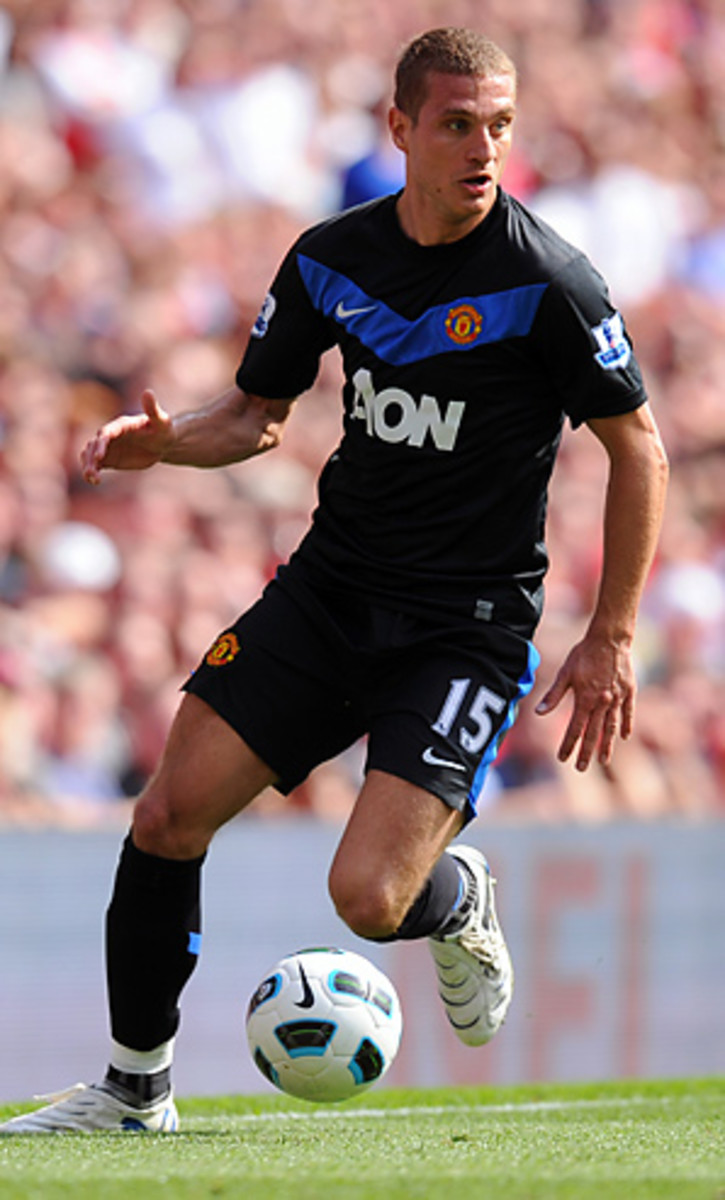Greater use of rotation gives United the edge in freshness over Barca
There are many things that set this Barcelona team apart from its predecessors. But one which hasn't often been highlighted -- and which is truly striking -- is that this is a more settled side than any other Champions League finalist in recent years. Not just by a little: by a lot.
Barcelona has nine players who have played at least two-thirds of the club's league minutes this season. Of the past 18 finalists (including this year) nobody has more than seven. Manchester United, by contrast, have just four: Patrice Evra, Nani, Nemanja Vidic and Edwin Van der Sar.
Barcelona's total is made all the more remarkable by the fact that in the last two league outings manager Pep Guardiola rested most of his starters and that two bona fide regulars, Carles Puyol and Eric Abidal, missed chunks of the season through injury and illness respectively.
Now, as you would imagine, there are two factors that contribute to the disparity between these two sides: injuries and squad rotation.
Barcelona, apart from the aforementioned, has been relatively fortunate this season, whereas, by contrast, United has seen the likes of Darren Fletcher, Antonio Valencia and Rio Ferdinand miss long stretches through injury.
But the other factor is striking. Manager Sir Alex Ferguson believes in rotation. Guardiola does not. And this could well have an impact come Saturday.
The benefits of rotation are obvious. Players rest more often so they are fresher when they do play and, crucially, fresher by the time the end of the season rolls around. There is little question that Barcelona appears more battle-worn than United at this stage of the season. The other plus is that rotation creates competition for places and, in theory at least, pushes players to work harder to get into the side.
There's a flip side though. For a start, the more options you have, the more you can get wrong. Look at United. Sir Alex will play either two or three central midfielders on Saturday. Michael Carrick, Paul Scholes, Darren Fletcher, Anderson, Park Ji Sung and Ryan Giggs are all competing for those two (or three) spots (the latter two, of course, can also be deployed wide). This adds another layer of thought (and, therefore, uncertainty) to Ferguon's task: he can find the combination best suited to stopping Barcelona but he could, just as easily, pick the wrong guys.
The other aspect of course is that the more players play together, the more familiar they are with each other and the more productive they become. Xavi said a while back that the years playing alongside Andres Iniesta mean that he "gains a split second or two" because he knows what run or movement his teammate will make. It's called chemistry and it matters.
It's especially true with a team like Barcelona, whose possession game means it often operates like clockwork. When a cog is substituted, things break down. Look at what happened when Javier Mascherano, a fine player but not a Barca "natural," stepped into the midfield. The "tiki-taka" didn't quite work as well, which is why, if we do see him at Wembley, it will be in central defense, where he'll get much less off the ball (and, see the ball less in crucial areas).
The message here is that there is no "correct" way of approaching the doling out of playing time, but, rather, it's a personal choice the manager makes based on his circumstances. Barcelona has a far stronger identity in terms of the way it plays, largely because the style -- and the personnel -- tend not to change. United is much more pragmatic and flexible.
In some ways, this puts the pre-match onus on Ferguson and United.
Ferguson knows how Barcelona is going to play and it, broadly speaking, knows who's going to line up for the Catalans and where. (There is some uncertainty at the back given the fitness of Puyol and Abidal, but, broadly speaking not much will change.) If Guardiola does modify his game plan the most he can really do is instruct his players to play differently -- against Real Madrid at the Bernabeu for example, Barcelona abandoned its trademark high pressing for long stretches -- but these are minor tweaks.
United, on the other hand have the full gamut of options. Apart from the back five (where the only question mark is which da Silva twin -- Rafael or Fabio -- will be at right back) it's not an exaggeration to suggest that the only player guaranteed a place in the team is Wayne Rooney. And even he won't know if it's as a centerforward in a 4-3-3, in a withdrawn role behind a speedy frontman like Javier "Chicharito" Hernandez or alongside Dimitar Berbatov.
The trick for United is finding the formation and the personnel to best counter Barcelona's game. In that sense, while both managers are strong tacticians, you could argue that Guardiola's work came in building the team, whereas Ferguson's comes in tweaking it, week after week. No prizes for guessing who has the tougher job in that regard.






